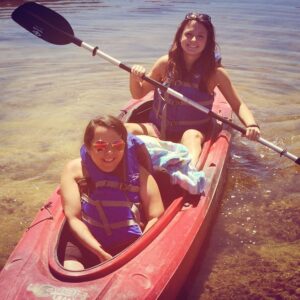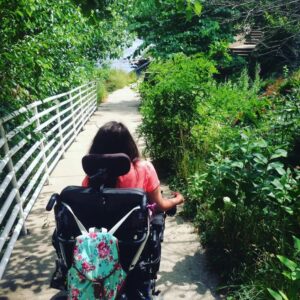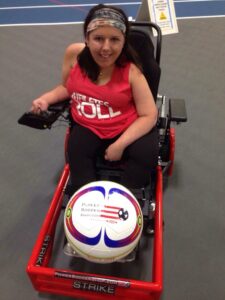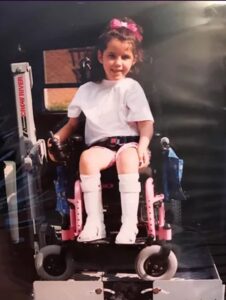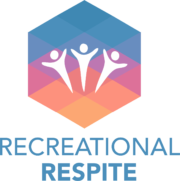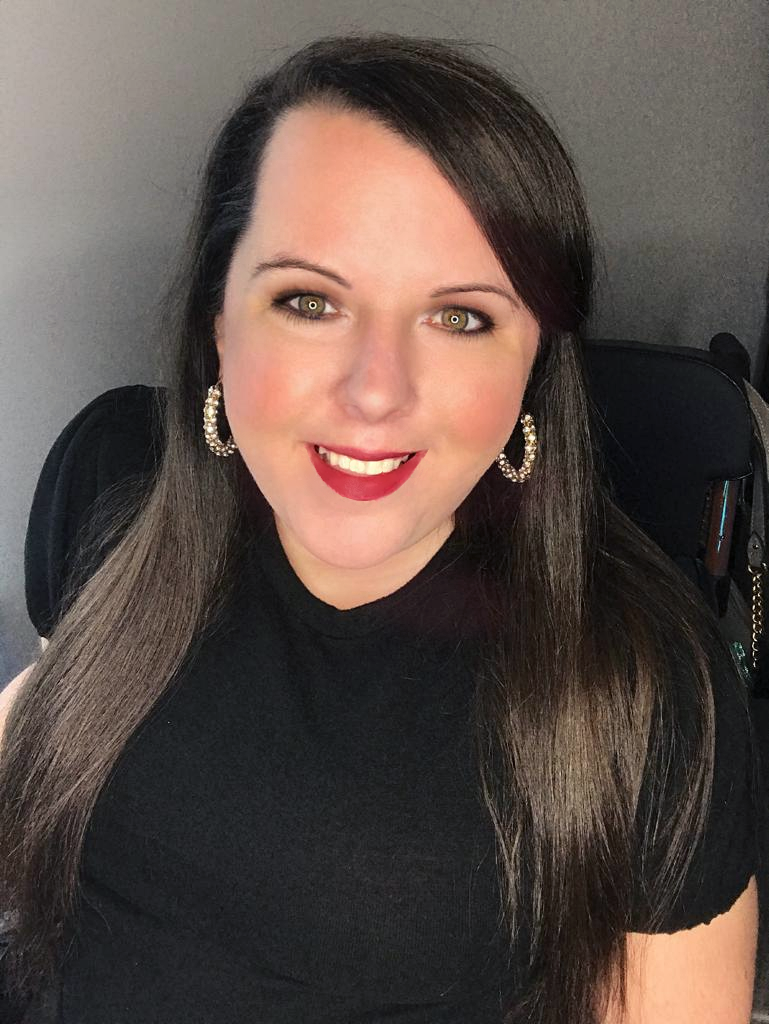By Lauren Presutti, MEd, EdS, LLMSW
Mental Health Therapist
Founder of River Oaks Psychology
Psychotherapist | Speaker | Writer | Designer | Entrepreneur
I have always embraced the motto, “work hard, play hard.” I appreciate my dedication to professional goals as a mental health therapist, but my career would certainly crumble to pieces if I did not have outlets for play. We often think about play as an important part of childhood, but did you know that playtime is actually an essential part of our mental wellness throughout the whole lifespan? Having appropriate outlets for play and recreation at every age is critical because it helps us to manage stress, build relationships, improve our confidence, foster our creativity, and strengthen our social identity. I’m a firm believer in taking “mental breaks” from our day-to-day responsibilities so that we can practice better self-care and find greater joy through non-productive activities that are simply about having fun, connecting with others, feeling fulfilled, and expressing ourselves. Recreational activities alleviate the everyday stresses of life and have been shown to reduce mental health symptoms like anxiety and depression.
But for many people with disabilities, chronic illnesses, or medical conditions of any kind, it can be hard to access recreation without appropriate support and resources. I experienced this firsthand as an individual living with a neuromuscular disease. I was diagnosed with a form of Muscular Dystrophy when I was two years old and I started using my first power wheelchair at age 5 (it was hot pink in color and I couldn’t wait to speed through my neighborhood!). I wanted to get out there and play with the rest of the kids, but I frequently experienced barriers that left me wondering where I fit in or if I even belong with my peers on the playground. Thankfully, my resourceful family connected me with professionals that taught me how to adapt my environment so that I could experience recreation in accessible ways. I also attended a muscular dystrophy summer camp for many years that helped me develop skills for recreation. Living in a small town where I felt largely accepted by my community was also helpful, as well as having an outgoing personality (I learned how to educate my non-disabled friends on how they could include me despite my limitations). Because of the support structures I had in place, I was thankfully able to integrate socially into my school and community. I can barely move my muscles, but I was passionate about throwing myself into mainstream life. In fact, I often got in trouble growing up when I got my wheelchair STUCK in muddy backyards and soggy fields with my friends! I just wanted to go play with everybody else (and our playtime was always worth it).
When I moved away from my small town-bubble to attend college, my world was significantly changed. I experienced enormous challenges living on my own during college, from needing to employ caregivers to assist me with activities of daily living, navigating barriers around my campus, facing difficulties with classroom accommodations, and overall trying to fit in at a large university with people who didn’t always understand disability. Again, I was fortunate to access resources and connect with people who helped me find outlets for recreation and social connections. Most helpful to me was connecting with students at my university who were studying therapeutic recreation. I expressed my interest in trying new things, and for the first time in my life, I learned about all kinds of organized adaptive sports that I had never heard about before. Even more than that, my motivation for adapting all sorts of traditional activities skyrocketed. With the physical help of many supportive people, I tried everything from adaptive downhill skiing, power wheelchair soccer, kayaking, horseback riding, roller coasters, parasailing, and more. Being able to try new things boosted my confidence and inspired me to study abroad during college. Never in my wildest dreams did I ever think it would be possible to travel by plane, but with growing confidence, I pursued it and successfully traveled with the assistance of people helping me. Through all of these experiences, I learned how much was possible for my life despite being so severely limited by my muscles. At one point, I even tried riding on a snowmobile by having my friends rig up an adaptive way to strap my body to the seat. The greatest life lessons that I took away from all of these experiences throughout my life are: you always have to try new things, push yourself beyond your comfort zone, don’t be afraid to ask for help, and believe in your ability to succeed.
My personal experiences with adaptive recreation combined with my professional training as a mental health therapist have given me a unique perspective. There are many people who advocate for disability inclusion, and many people who advocate for mental health awareness, but few people are specialized in the intersection of these areas. As a result, the mental health needs of those with disabilities are sometimes overlooked. It’s often very hard for individuals with disabilities to feel included in society because historically, the world was not designed for disability. Individuals with disabilities are constantly having to adapt themselves to their environments. Sometimes non-disabled people are unconsciously uncomfortable around people with disabilities. It’s often very exhausting for individuals and families affected by disabilities to always have to explain their needs to people who don’t quite understand them, to adapt themselves to the world at large, and to feel an overwhelming sense of difference from the mainstream community. In addition, disability stigmas and stereotypes are so powerful that it can be hard to build meaningful connections through social outlets. This often leads to feelings of isolation, loneliness, low self-confidence, anxiety, and depression.
Recreation can be the key to alleviating these challenges. If you or someone you know is experiencing mental exhaustion due to disability-related challenges, loneliness due to feelings of isolation, or depression due to a lack of enjoyment in day-to-day life, I urge you to consider greater opportunities for recreation. It doesn’t matter the type of recreation. Every individual will have the unique needs and interests. It might be as simple as playing a board game or doing a crossword puzzle. Others may be interested in organized adaptive sports or finding accessible trails to hike on. Or maybe you want to find opportunities to engage in arts and crafts. Every single type of recreation – no matter what it is – can be extremely beneficial for your mental health. Especially for those living with disabilities, recreation is critical to empowerment.
I consider it my passion and purpose in life to bridge the conversation between disability empowerment and mental wellness so that more and more people with disabilities can establish meaningful connections with others and be included as equal, accepted citizens of the world. How can we create meaningful connections between those with and without disabilities in a way that benefits everyone? Recreation is an excellent starting point, especially when your involvement in recreation allows opportunities to be a part of a wider social atmosphere, to build confidence and coping skills, and to elicit feelings of personal joy and fulfillment that lead to stronger relationships.
Email info@recrespite.com to learn how Recreational Respite can help individuals with disabilities remove barriers to recreation and social connection in their community.
To learn about River Oaks Psychology, visit www.riveroakspsychology.com and follow River Oaks Psychology on Facebook, Instagram, Twitter, YouTube, and LinkedIn.
